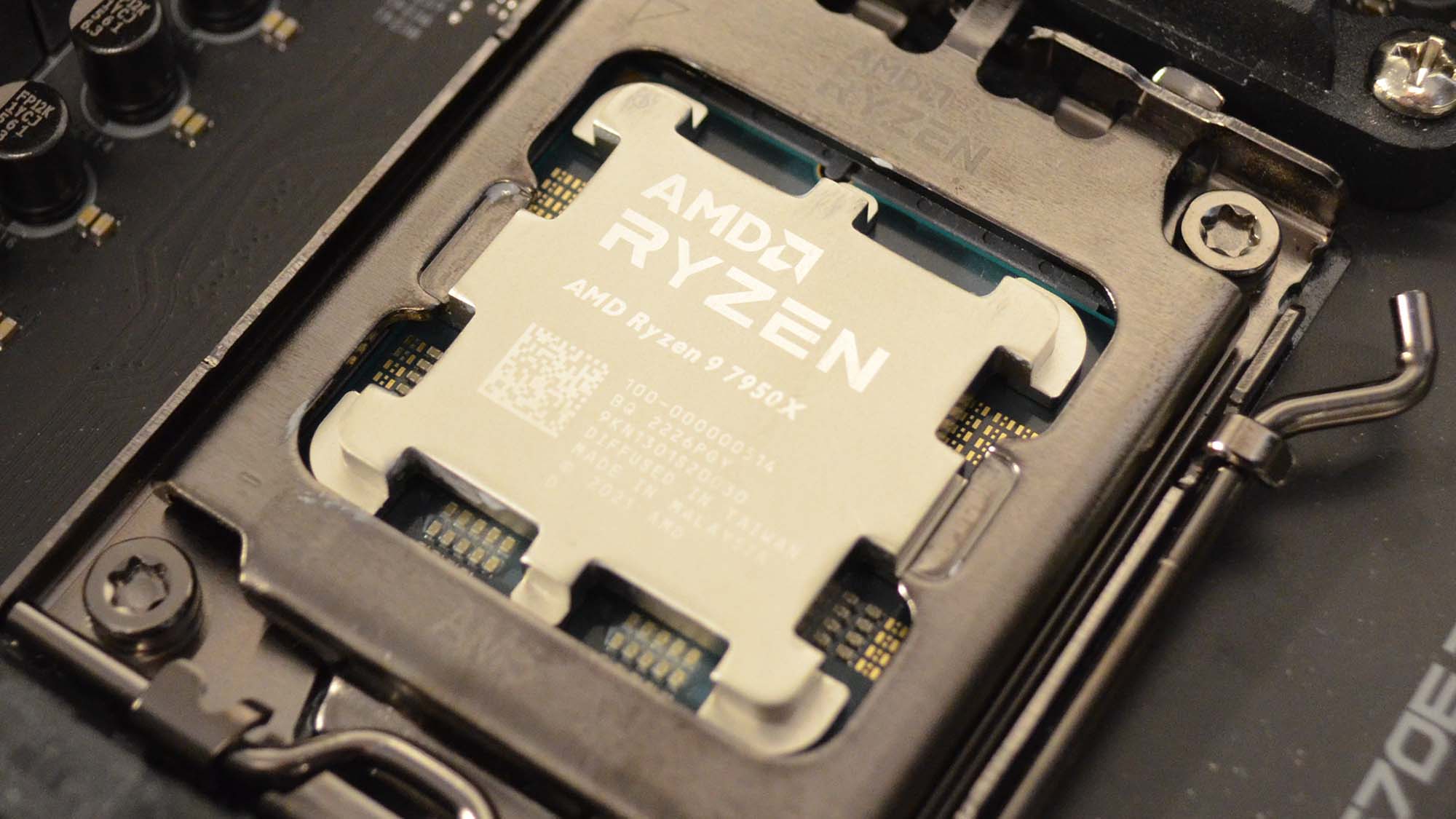Sorry, the Ryzen 9 7950X isn't hitting 6.3GHz
Misreported clocks make it look like the AMD chip is speed soaring

Sign up for breaking news, reviews, opinion, top tech deals, and more.
You are now subscribed
Your newsletter sign-up was successful
If you're lucky enough to have the AMD Ryzen 9 7950X, you may have noticed that the normally speedy chip appears to be running at near record-breaking boost speeds. Unfortunately, you aren't actually getting that much performance out of the chip.
The Ryzen 9 7950X is one of the best processors around with a boost clock speed of 5.7GHz, which is already blindingly fast. According to our friends at Tom's Hardware, some users have found however that when their PC running the chip wakes from sleep, the processor's clock speed shoots up to 6.28GHz, which would be absolutely incredible if it were real.
Unfortunately, those near-record-breaking clock speeds are too good to be true. It looks like the AMD chip has been hit with the RTC (Real Time Clock) reporting bug, which makes the chip look like it's running significantly faster than it actually is.
Fortunately, unlike a lot of Windows 11 bugs or major security issues with AMD chips, the RTC bug isn't going to break anything or affect performance in any way as far as anyone can tell, which may be why it's a lingering issue that never quite manages to get ironed out whether it's with the best Intel processors or AMD's.
So about those benchmarks...
One thing about RTC bugs is that benchmarking tools rely on RTC for how they are scoring a given component like a processor or a graphics card. There's nothing wrong with that at all, it's why RTC reporting exists. The problem though is that an RTC bug can throw off benchmark scores in tools like CineBench that users and reviewers alike use to test out a system.
Benchmarking is especially important if you build your own PC, since benchmarking is an important way to tell that your system has been assembled and integrated properly. This most recent RTC reporting bug shows why it's also so important to not rely on a single test to determine how well a system performs.
When I do benchmarks on any component, I make sure to use a variety of tools and usage scenarios to measure how well it performs, specifically because there might be an issue with any given test. While every synthetic processor benchmark will factor in the clock speed given by RTC, a gaming benchmark doesn't factor that in at all, so if a processor is incorrectly reporting a 6.28GHz boost clock, you would expect this to translate into demonstrably higher FPS while gaming at low settings and 1080p resolution when using a powerful graphics card.
Sign up for breaking news, reviews, opinion, top tech deals, and more.
If those numbers don't match that expectation, then you have strong evidence that something might be wrong somewhere in how you put everything together. In short, always use a diversity of tests when benchmarking a system. That way, you never have to worry about an RTC bug keeping you from optimizing your build.

John (He/Him) is the Components Editor here at TechRadar and he is also a programmer, gamer, activist, and Brooklyn College alum currently living in Brooklyn, NY.
Named by the CTA as a CES 2020 Media Trailblazer for his science and technology reporting, John specializes in all areas of computer science, including industry news, hardware reviews, PC gaming, as well as general science writing and the social impact of the tech industry.
You can find him online on Bluesky @johnloeffler.bsky.social